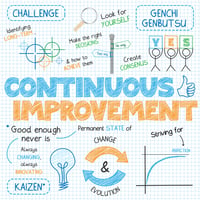The saying "an ounce of prevention is worth a pound of cure" is especially applicable when talking...
Understanding Medical Device Recalls: Protecting Patient Safety
In the rapidly evolving realm of medical technology, a major focus must be maintained regarding patient safety and product quality. As leaders in the MedTech industry, it is imperative to put processes and systems in place to ensure vigilance around potential risks -- and proactively implement measures to address them. Sometimes, however, issues identified post-market result in product recalls.
This article delves into the importance of medical device recalls, exploring their impact on the industry and the skillful management required to protect patients. Proactive risk identification and mitigation through the diligent integration of a robust design, development, and risk management process. However, it's important to acknowledge that recalls are sometimes a necessary, reactive response to unanticipated issues, and they address unforeseen post-market risks that could compromise patient well-being.
The Significance of Medical Device Recalls
Actions taken by manufacturers or distributors to tackle safety issues pertaining to their products constitute medical device recalls. These issues may stem from design flaws, manufacturing defects, labeling errors, or even unforeseen adverse events or malfunctions. Initiation of a recall with promptness underscores a MedTech company's commitment to prioritize patient well-being above financial gains and reputation. Moreover, it exhibits transparency and accountability, both of which are pivotal in upholding credibility with healthcare professionals and the general public.
Impact on the Industry
While recalls do present challenges to MedTech companies, they concurrently offer an opportunity to exhibit responsible leadership. Demonstrating an unwavering commitment to identifying and addressing post-market issues decisively and thoroughly becomes a hallmark of leadership in this space.
Regulatory requirements for post-market surveillance and the establishment of streamlined processes for prompt and resolute responses are key attributes of responsible leadership in the MedTech industry. Effectively navigating these aspects can not only bolster brand trust but also reinforce the organization's dedication to patient safety and industry integrity. Conversely, mishandling a recall can lead to serious consequences, including legal liabilities, financial losses, and lasting reputational damage.
Efficient Handling of Medical Device Recalls
Swift and Candid Communication: Upon identifying a potential issue, open and transparent communication with regulatory authorities, healthcare providers, and the public is essential. Transparency fosters trust and ensures that necessary actions are taken promptly.
Risk Assessment and Root Cause Analysis: Thorough FMEA risk assessments are essential for understanding potential patient impacts and proactively identifying underlying failure modes. While FMEA is primarily a preventive exercise, during recalls, it's revisited to integrate new insights and address patient well-being and root causes effectively.
Collaboration with Regulatory Authorities: Close collaboration with regulatory agencies, including FDA's MedWatch program, is crucial to adhere to guidelines and requirements during the recall process. Transparent communication facilitates a smoother and more efficient recall.
Recall Strategy: Crafting a comprehensive recall plan that offers lucid instructions to healthcare providers, patients, and distributors is of utmost importance. The strategy should aim to mitigate any potential harm to patients and ensure the return or replacement of affected devices. Packaging inserts, instructions for use (IFU), and labeling should clearly describe the appropriate contact pathways and information that should be provided to the medical device manufacturer in the case of a problem.
Post-Recall Evaluation: After the recall is completed, conducting a comprehensive evaluation of the entire process is imperative to identify areas for improvement. Implementation of lessons learned reinforces future product safety practices and response.
Conclusion
Medical device recalls play a pivotal role in ensuring patient safety and cultivating trust within the MedTech industry. As leaders in this field, prioritizing safety and implementing effective recall strategies are instrumental in safeguarding patients, upholding reputations, and reinforcing the overall integrity of the industry. Embracing transparency, accountability, and collaboration allows companies to transform a potentially challenging situation into an opportunity to showcase their commitment to excellence and patient welfare.
Stay informed and keep your organization at the forefront of medical technology by subscribing to the Medpoint blog. Gain valuable insights on medical device recalls, regulatory affairs, quality assurance, and more - empowering you to navigate the complexities of manufacturing and commercializing medical devices, pharmaceuticals, and biologics.


